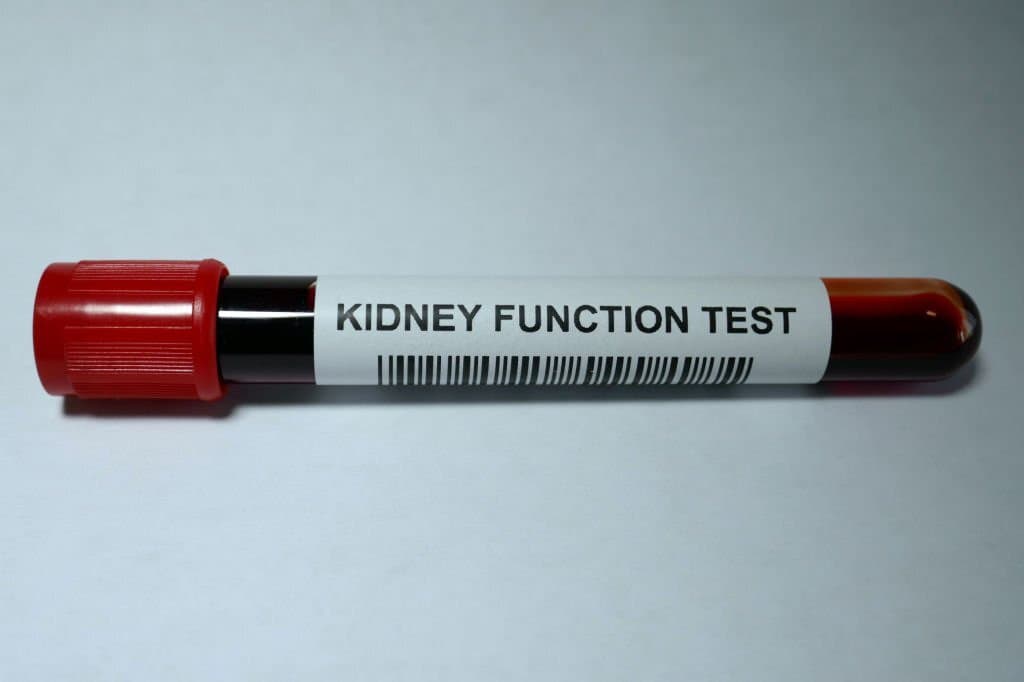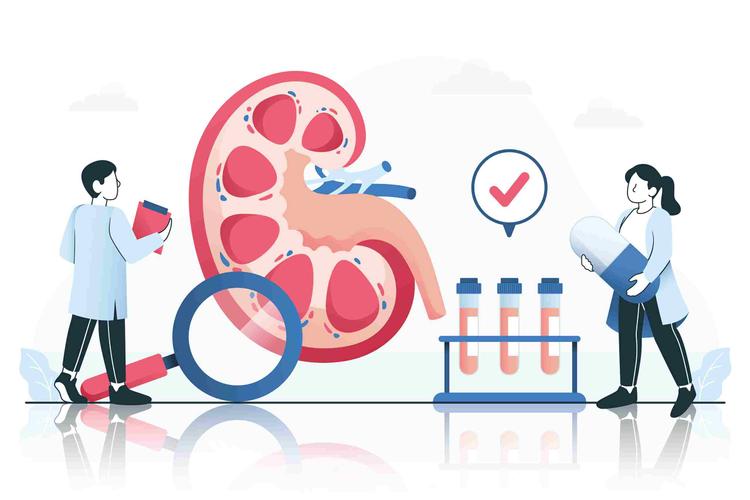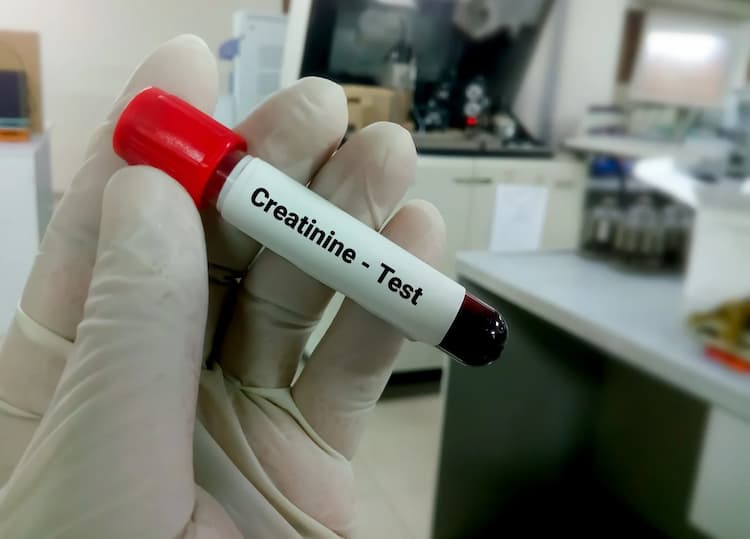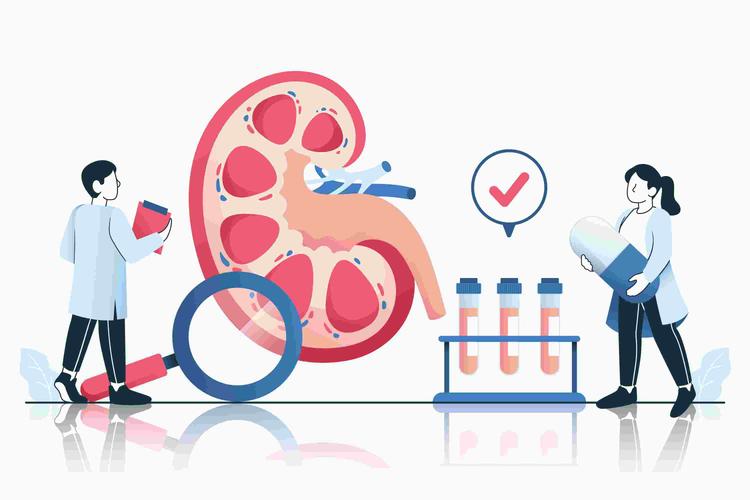KFT Test List: Imaging Tests Done to Check Kidney Functions

Medically Reviewed By
Dr Divya Rohra
Written By Prekshi Garg
on Feb 28, 2022
Last Edit Made By Prekshi Garg
on Mar 18, 2024

Kidneys are vital body organs involved in maintaining good health. Disorders of the kidney often have no symptoms until they are severely damaged. Therefore, tests are the only way by which you can know how well your kidneys are working. The kidney function test (KFT) is one such test that uses urine and blood samples to check for 11 essential parameters that can give a better insight into the functioning of the kidney. In this article, read about the parameters that are evaluated in a KFT using blood and urine sample. Also, get some information on the imaging test and biopsy used for kidney tests. 
Kidney Function Tests
The kidney function test in Delhi (KFT) are done to analyze if your kidney is working properly or not. For this reason, there are 11 tests conducted which may use your blood or urine sample or the imaging methods. According to the National Institute of Diabetes and Digestive and Kidney Diseases (NIDDK), the KFT test includes:
- The blood tests are done to calculate the glomerular filtration rate (GFR) that checks how well your kidney is filtering blood.
- The urine tests are done to check for the presence of albumin protein. The presence of albumin protein in urine indicates kidney damage.
KFT Test List
According to the National Kidney Foundation, the parameters tested in a blood sample during kidney function test are:
Serum creatinine
Normal wear and tear of muscles produce creatinine as a waste product. The levels of creatinine in the blood are the early signs for the diagnosis of kidney damage. Although creatinine levels are majorly dependent on your age and body size, the average creatinine level for women is less than 1.2, and for men, it is less than 1.4.
Glomerular filtration rate (GFR)
This parameter evaluates how well the kidneys are removing waste and fluids from the body. The GFR values generally depend upon your age and gender. The GFR values above 90 are considered normal, whereas GFR values less than 60 indicate improper functioning of the kidney. A GFR value less than 15 indicates the dialysis or a kidney transplant requirement.
Blood urea nitrogen (BUN)
The breakdown of protein in food results in the production of urea nitrogen. The levels of BUN in the blood increase when the kidney is not functioning properly. The optimum level of BUN in the blood is between 7 to 20.
Urine Tests
Urine tests are done either using a small urine sample or sometimes you can be told to collect all the urine that passes for 24 hours to give a better and more accurate prediction of the health of your kidney. The various urine tests include:
Urine protein
The urine protein test is done to estimate the level of proteins in your urine. The presence of an excess amount of protein in the urine gives rise to a condition known as proteinuria.
Microalbuminuria
This test detects even the small amount of albumin protein in your urine sample. This test is very important if you have high blood pressure or diabetes, which makes you prone to the development of kidney disease.
Albumin/ creatinine ratio (ACR)
The ACR value is calculated by dividing the amount of albumin present in urine by the amount of creatinine present in the urine. The normal value of ACR is less than 30. ACR levels between 30 - 300, ACR levels indicate moderate albuminuria whereas the ACR levels above 300 indicate severe albuminuria.
Creatinine Clearance Test
In the creatinine clearance test, the creatinine levels are calculated in the 24-hour urine sample and the blood sample. The values in both blood and urine sample are compared to see how many waste products are being filtered by the kidneys in each minute.
Urinalysis
It is the microscopic examination as well as dipstick test of the urine sample done to check for the presence of abnormalities such as the excess amount of protein, bacteria, pus, and sugar.
Imaging Test
CT Scan
In this technique, X-rays are used to obtain the image of the kidneys. This helps in predicting the presence of obstructions and abnormalities in the kidney. Sometimes, an intravenous contrast dye is also used to obtain a more clear CT scan image.
Ultrasound
In this test, sound waves are used to get a clear image of the kidney. This test is used to detect any abnormalities in the size or the position of the kidneys. The test is also used to detect any stones or tumors present in the kidney.
Kidney Biopsy
In a kidney biopsy, a small piece of the kidney tissue is spliced using a thin needle with a sharp cutting edge. The tissue is then examined under the microscope for one of the following reasons:
- Identification of specific diseases
- Determine the response of the disease to a treatment
- Evaluate the damage that has occurred in the kidney
- Identify reasons for an unsuccessful kidney transplant
Takeaway
The kidney is an important organ responsible for excreting waste products out of your body. The kidney function test is done to determine the efficiency of the functioning of the kidney. Now that you know the tests and their importance in a kidney function test, you will be able to analyze and evaluate your KFT test.
Frequently Asked Questions (FAQs)
-
How many tests are conducted in a kidney function test (KFT)?
The kidney function test includes approximately 11 tests to assess the complete functioning of the kidney. Tests include blood urea, Blood Urea Nitrogen (Bun), Calcium, Creatinine, Phosphorous, Sodium, Uric Acid, BUN/Creatinine Ratio, Chloride, Potassium, Urea/Creatinine Ratio, and Potassium.
-
How can I get my kidney function test done?
You can get your kidney function test done easily at Redcliffe labs. There are few ways by which you can book your test at Redcliffe Labs. You can call our center or book your test online through our official website or our official app.
-
How much will a kidney function test cost me?
The cost of a kidney function test at Redcliffe labs is approximately Rs 349 - Rs 399/.
-
When will I be suggested for a kidney function test?
Your doctor might recommend you a kidney function test if you have one or more of the following symptoms:
- Presence of blood in urine
- High blood pressure
- Difficulty in urination
- Frequent urination
- Swelling of the hands and feet
- Painful urination
![RFT Test - Price, Purpose, Procedure, Results [2024]](/myhealth/_next/image/?url=https%3A%2F%2Fmyhealth-redcliffelabs.redcliffelabs.com%2Fmedia%2Fblogcard-images%2FNone%2Fcda1f900-5908-4ca0-b18b-0a9c7882c0f9.webp&w=750&q=75)


